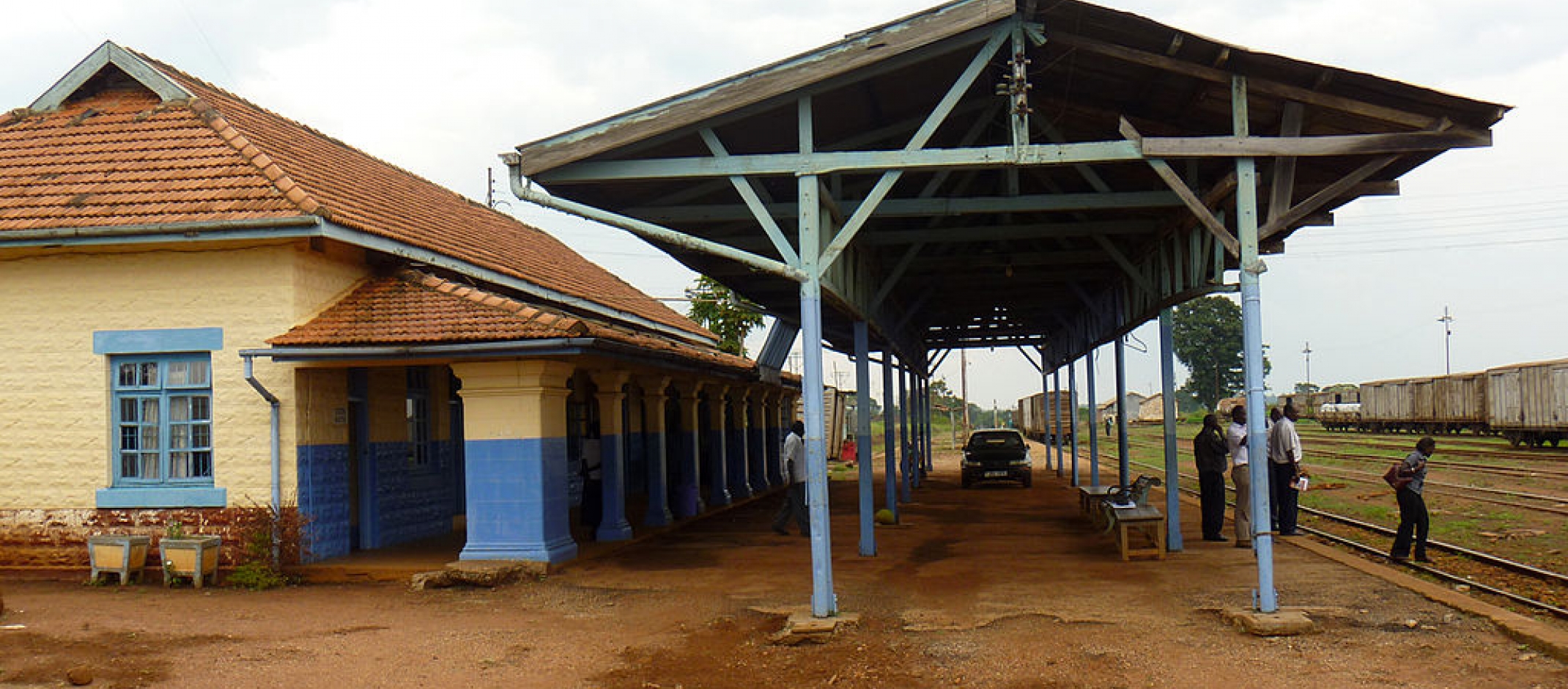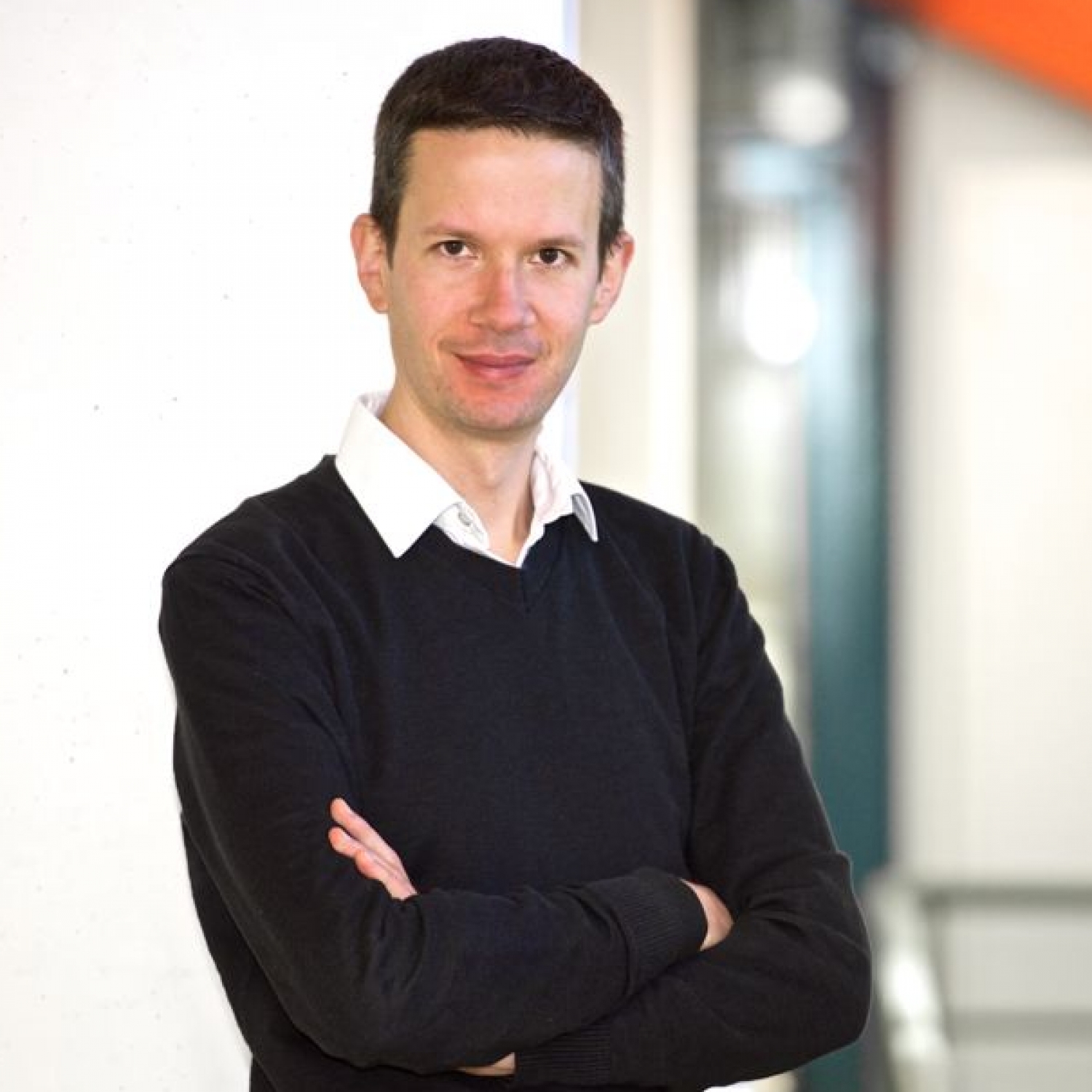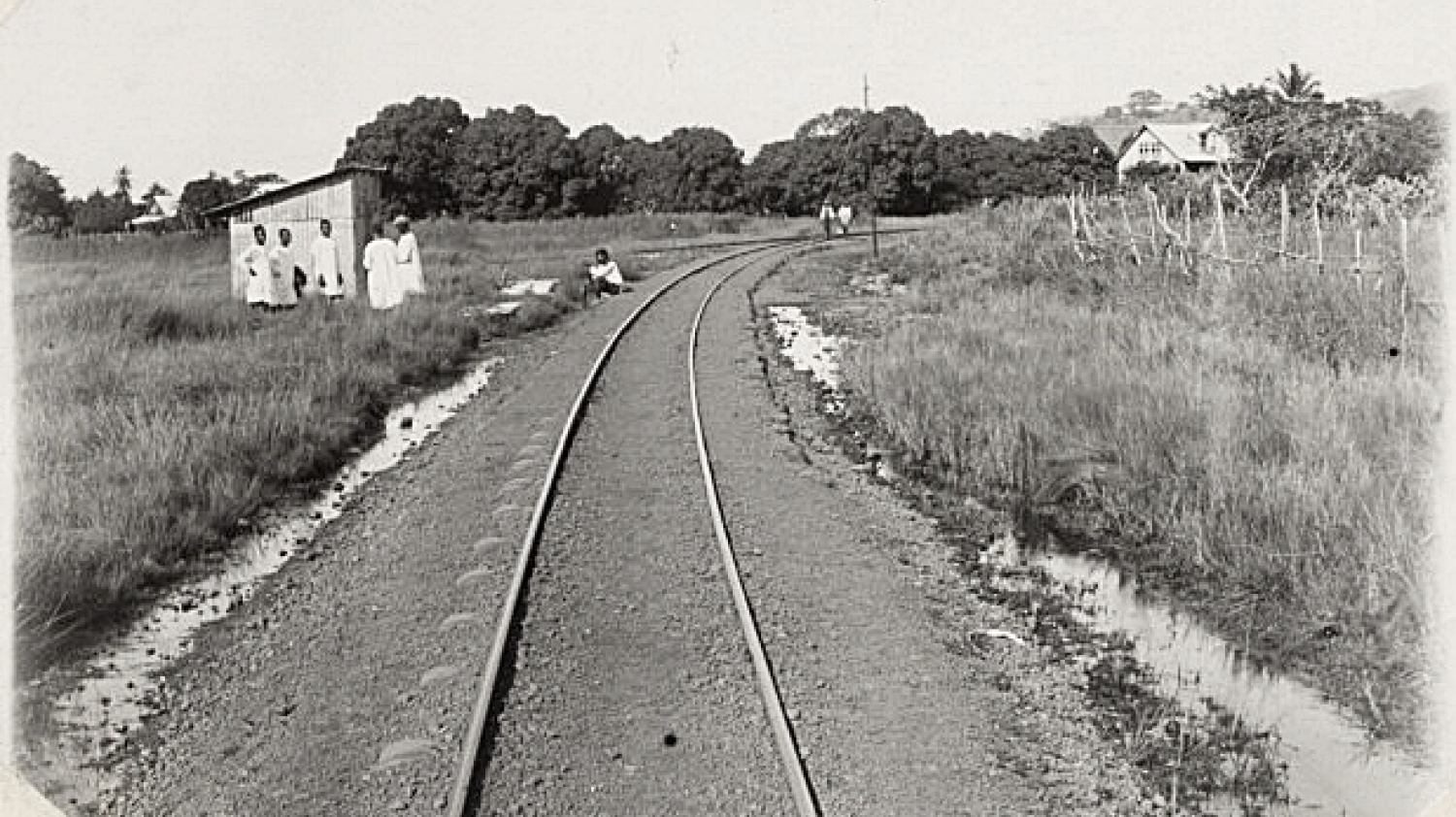What long-term negative impacts do colonial infrastructures still have today?

At this year's members’ meeting of the Association for Anglophone Postcolonial Studies (GAPS), a new president was elected: Timo Müller, professor of American studies at the University of Konstanz. The election took place shortly before the annual GAPS conference in Konstanz that Müller helped organize. The conference, titled "Postcolonial Infrastructure", provided 150 participants from all over the world with diverse perspectives on the cultural transformation of infrastructure, a new research priority in the humanities at the University of Konstanz.
Timo Müller about postcolonial infrastructure
When we hear the words "infrastructure" and "colonialism", we tend to think of large infrastructure projects such as the Suez Canal or major railway lines. What sociopolitical infrastructures consolidated colonial rule?
Timo Müller: Such major projects did indeed play a crucial role in colonialism. And colonialism truly was a gigantic infrastructure transfer project. However, small, often overlooked infrastructures played an important role, too. For example, the destruction of healthcare or water supply structures made locals dependent on the colonizers.
For cultural scholars like us it is especially interesting to study how these infrastructures were legitimized, namely through the dissemination of ideas and narratives about the colonized peoples and the supposed "civilizing" effect of the new infrastructures.

“In the West, we are only starting to realize that it is the colonial infrastructures themselves that cause environmental degradation and social damage. This is why it is important to recover indigenous infrastructures as much as possible and to learn from them.”
Timo Müller
To what extent are infrastructures still the key to understanding postcolonial situations and inequalities?
Timo Müller: Since such inequalities are no longer considered politically acceptable, those who profit from them – e.g. rich countries in Europe and North America – have transferred the mechanisms behind these inequalities to the infrastructural level where they are not immediately visible. For example, "development aid" continues to be designed in such a way that recipients must pour a good portion of the funds back into the donor countries' economies, for example to buy spare parts for new equipment.
“The ‘underprivileged districts’ of European cities often serve as places to isolate postcolonial migrants and portray them as ‘problematic’.”
Timo Müller
The French suburbs we now see burning have become increasingly disconnected from the city centres. Infrastructural links have been cut, and it takes just a tell-tale postal code on the cover letter for a job application to be rejected. Here, material infrastructures and their cultural perception reinforce each other. They often do, as our research shows.
What aspects of postcolonial infrastructures do you examine in your current research?
Timo Müller: I am currently working on cultural perceptions of roads and automobility, for example, in my ERC project "Off the Road: The Environmental Aesthetics of Early Automobility". We found, for instance, that the first motorists to cross the Americas saw themselves as pioneers in the tradition of European colonization. They believed that they could use the car to help civilize indigenous populations. At the same time, however, they were also using the new technology to portray this population as backward. Such ideas continue to have an impact today. For example, roads are often built without regard for the needs of local residents. This happens especially often when these residents are perceived as marginalized ethnic groups.
Ghana, 1910s
© Attribution: The National Archives (https://www.nationalarchives.gov.uk/). Open Government License: https://nationalarchives.gov.uk/doc/open-government-licence/version/1/
A critical look at the effects of colonialism
Timo Müller has been a member of GAPS since 2011 and had already held various positions on the board before being elected as its president. In this capacity he draws on his own research in the field of postcolonial literatures, particularly on the Caribbean and the Black Atlantic. "I feel very honoured by the trust that the members of GAPS have placed in me", the literary scholar says.
“As the president of GAPS, I especially want to support our younger members and strengthen the exchange between researchers from different countries and in different career stages.”
Timo Müller
With its approximately 300 (inter)national members, GAPS promotes research on global Anglophone literatures, varieties of English as well as postcolonial societies in Europe and around the world. GAPS takes a critical look at the history of European colonialism and its social, cultural, literary, and linguistic effects in addition to discussing theories and methods of postcolonial studies. In the German-speaking context, GAPS is the only association to promote early career researchers in these fields.
Further information is available on the GAPS website.

